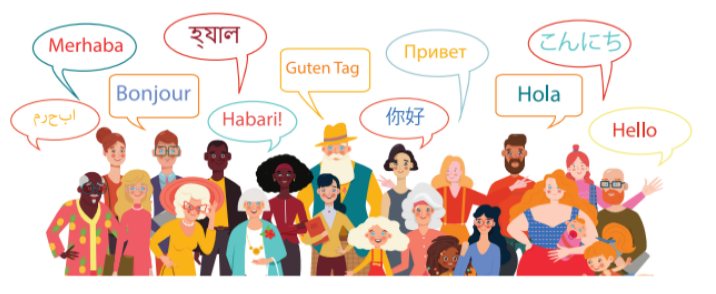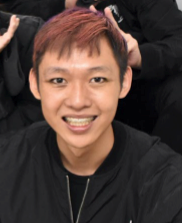2022.03.01
Youth Report by NUS
シンガポール国立大学(NUS)語学教育研究センター(CLS)LAJ4203 Newspaper Readingの日本語履修生が日本語で様々なトピックを綴ります。
日本人のように日本語喋れる「外国人」

私たちはSDGsを支援しています
皆さんは外国語を学んだ経験はあるでしょうか。外国語を学んでいる時、「英語が上手ですね」、「フランス語が上手いなぁ」とネイティブの人に言われたら、どう思われますか。これは私の経験ですが、日本人と日本語で話している時、「日本語が上手ですね」と言われると、反応ができなくなってしまいます。なぜかというと、日本人のように喋れないし、まだ勉強中なんですから。
実は、現代の日本社会には、日本人と外国人とのハーフが多くいます。アジア人や欧米人など色々なハーフがいますが、日本語が喋れる「外人」と呼ばれているのは意外でした。見た目は日本人ではないため、きっと外国人だと思われるからでしょう。これは岩澤直美さんのお話です。
岩澤さんは日本人のお父さんとチェコ人のお母さんの間に生まれ、日本や海外で育ちました。異なる環境で育つことの違いと言えば、地元の人々からの目線や扱いです。どんなことか想像できますか。岩澤さんは小学1年生の時、海外から大阪の小学校に転校して、酷い仕打ちを受けました。日本の学生生活を期待していたのに、同級生が「早く帰りや」、「なんで日本人ちゃうのに日本語喋んの?」など残酷なことを言われて、深く傷つきました。
ところが、6年生の時、ドイツに引っ越したとたん、岩澤さんの生活は全く変わりました。インターナショナルスクールに通っていた岩澤さんを待っていたのは、外見や人種ではなく、趣味や得意な物だけに興味を持つ、好奇心と愛がいっぱいの学生たちでした。
さて、外国人に見える人に対する偏見の原因はなんでしょうか。異国の文化に触れたり、外国人と交流する機会が少ないことが問題かもしれません。21世紀にもかかわらず、人種差別という問題がまだ残っていることは残念でなりません。
日本語のクラスであるビデオを見ました。横浜市立飯田北いちょう小学校では、多国籍の子どもたちがお互いの文化を尊重しながら仲良く学んでいます。そこの先生たちは、21カ国から来た子どもたちに平等に教えたり、それぞれの文化を、給食や運動会などを通して自然に紹介したりしています。このように、意識して、外国の文化を学ばせることによって、外国の文化を尊重する気持ちを育て、人種差別を防ぐのはいい考えだと思います。
グローバル化が進み、世界の様々な国で外国人の割合が増えています。私達は多文化理解の意識を持って他人に優しくしなければならなくなっています。アメリカでは大昔から続く黒人に対する人種差別問題がまだありますし、アジア人への人種差別もあり、去年から人種差別反対のデモが続いています。そのような行動は、お互いの文化を理解して、文化の違う人に対しても友達や親戚のように接することができるようになるためには、必要ではないでしょうか。
シンガポールでは隣国から多くの人が移住しています。人種差別の問題はあるはずなのに顕在化していません。みんな共に生活できる秘密は何でしょうか。外国人を隣人として認め、受け入れること。その大切さを他の国にも教えて、この21世紀こそ、人種差別問題をなくそうではありませんか。

“Foreigners” who can speak Japanese like Japanese
Have you tried learning a foreign language? How do you feel when you a native speaker compliments you when you are conversing with them in their native language? This is my experience, but when I’m talking to a Japanese in Japanese, when they say, “You’re good at Japanese”, I am unable to react. The reason is that I can’t speak like a Japanese, and I’m still studying the language. 👍
In fact, there are many Japanese and foreigners in modern Japanese society. There is also a high number of mixed-blood Japanese, but it was surprising that they were labelled as “foreigners” who could speak Japanese, just because they do not look like a Japanese. One such victim is Naomi Iwasawa’s.
Iwasawa was born to a Japanese father and a Czech mother, and grew up both in Japan and abroad. The difference between growing up in a different environment is the treatment from the locals. Can you imagine what it was like? When Iwasawa was in the first grade of elementary school, she transferred from overseas to an elementary school in Osaka, where she was badly treated. She was looking forward to the studying in Japan, but her classmates said things like, “Go home already”, “Why can you speak Japanese when you’re not even Japanese?”. She was deeply hurt by these comments.
However, as soon as she moved to Germany in the sixth grade, Iwasawa’s life completely changed. She attended an international school, where students were more concerned of what hobbies and specialties that their peers have, and not appearances or race.
Now, what is the cause of prejudice against foreigners? It may be a result of the lack of opportunities to experience foreign cultures and interact with foreigners. Especially since it is the 21st century, it is a concern that the problem of racism still remains.
I watched a video that is shown in a Japanese lesson. At Yokohama City Iida Kitaicho Elementary School, children from 21 countries attend the school, and are learning together while respecting each other’s culture. The teachers teach these children and treat them equally while introducing the different cultures through school activities. In this way, they are able to foster respect for foreign cultures and prevent racism by being conscious and learning about foreign cultures.
The proportion of foreigners is increasing, and there is an increasing need to be friendly to others with a sense of multicultural understanding. We should not judge others based on only their appearances, but instead we should understand the other party and their background, before we praise them for being able to speak a foreign language.

タン・ダレン
私の夢は、いつか日本に住んで、社会に貢献することです。日本の文化や日本語の美しさに興味を持っており、これまでNUSで三年以上にわたって、日本語を勉強して参りましたので、その努力を無駄せずに、日本で、働きたいと思っております。仕事しつつ、新しいことを学んで、社会に貢献したいと思っております。
そのために、一生懸命日本語を上達させて、働きたいと思います。どうぞよろしくお願いいたします。
■気になっているニュース■
技能実習生への暴力やひどい働かせ方をなくしたい
外国人の技能実習生に暴力を使ったり、低い給料で長く働かせたりする問題をなくすために、日本は先月労働局に、厳しい対策を取るように言ったということです。ニュースを読むと、これは人種差別に当たると思いました。もし職場でこういう問題があったら、どうやって対処しようと思いますか。



